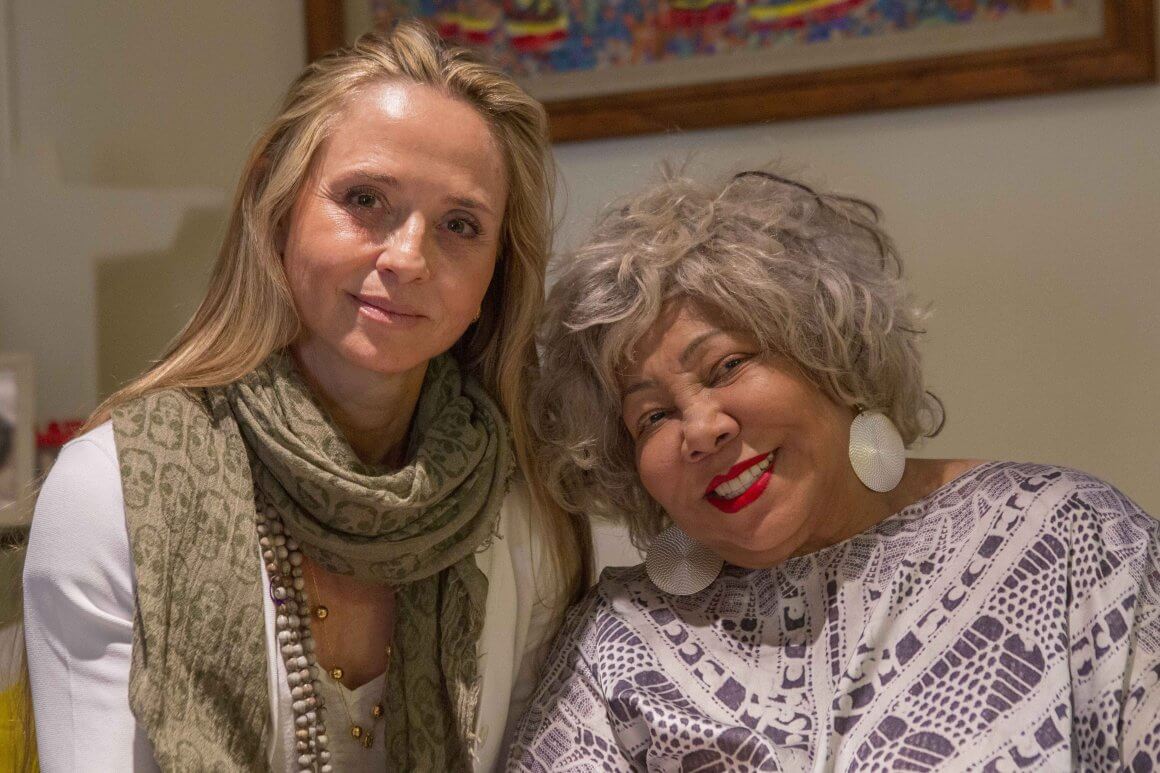Brazilian singer Alcione to become godmother of cooperative for female detainees in Maranhão, Brazil
Brazilian singer Alcione accepted the invitation made by the president of the Humanitas360 Institute, Patrícia Villela Marino, to become the godmother of the new cooperative for female detainees that H360 is implementing in Maranhão state, Brazil, in partnership with the National Council of Justice and the state government. The sambista was happy: “I’m going there in the Pedrinhas prison, I really believe in this idea. A lot!”.
A black woman, from the Northeast Region of Brazil and of indigenous descent, Alcione is a frequent advocate of many causes of her people. Very active in the samba field and in the samba school of her heart, Rio de Janeiro’s Mangueira, she remembered during the conversation about stigmas against black people – just like, for example, the ones many of her fellow Mangueira members have to endure. This cause brought her closer to the predominantly black prison population in Brazil. After carnival commitments with the school, the singer promised to visit and meet the cooperative members in Maranhão.
Alcione was born in the city of São Luís, capital of Maranhão, and has eight brothers. Her father, a musician in the police band, taught her to play the clarinet. She arrived in Rio de Janeiro in 1972, when she started singing at the Little Club and became known on the Beco das Garrafas, the bossa nova music circuit. Alcione then gained space in young talent shows on TV – like the one hosted by Flávio Cavalcanti – and recorded her first album in 1975. From that point on, she never stopped: several of her albums were certified gold and her voice is celebrated all over the country, where she is known by the nickname “Marrom” (“brown” in portuguese).
In addition to explaining the Entrepreneurship Behind and Beyond Bars project, Patrícia also showed Alcione some details of the Tereza brand products, which will market the products created by the female detainees in Maranhão. After learning about the embroidery work done by Cooperativa Lili, a cooperative supported by Humanitas360 in Tremembé Second Women’s Prison, Alcione recalled that the technique known as “fuxico” is a Maranhão specialty – her sister, for instance, makes quilts that way. The sambista herself also knows how to embroider on various types of stitches: “I learned all kinds of sewing in school, I can do the overlock stitch, the full stitch, and many others.”
During the conversation, Patricia and Alcione also spoke about the importance of the work in rescuing not only the detainees, but their entire social circle as well. “Recovering 40 women is also recovering 40 families,” recalled the H360 president. “I thank you for remembering of me to be the cooperative godmother. Let’s build identity and give some direction to the girls of Pedrinhas!”, cheered up the singer.
https://www.youtube.com/watch?v=XxYUmq2qzjE
(Tradução: Andrei Reina)

